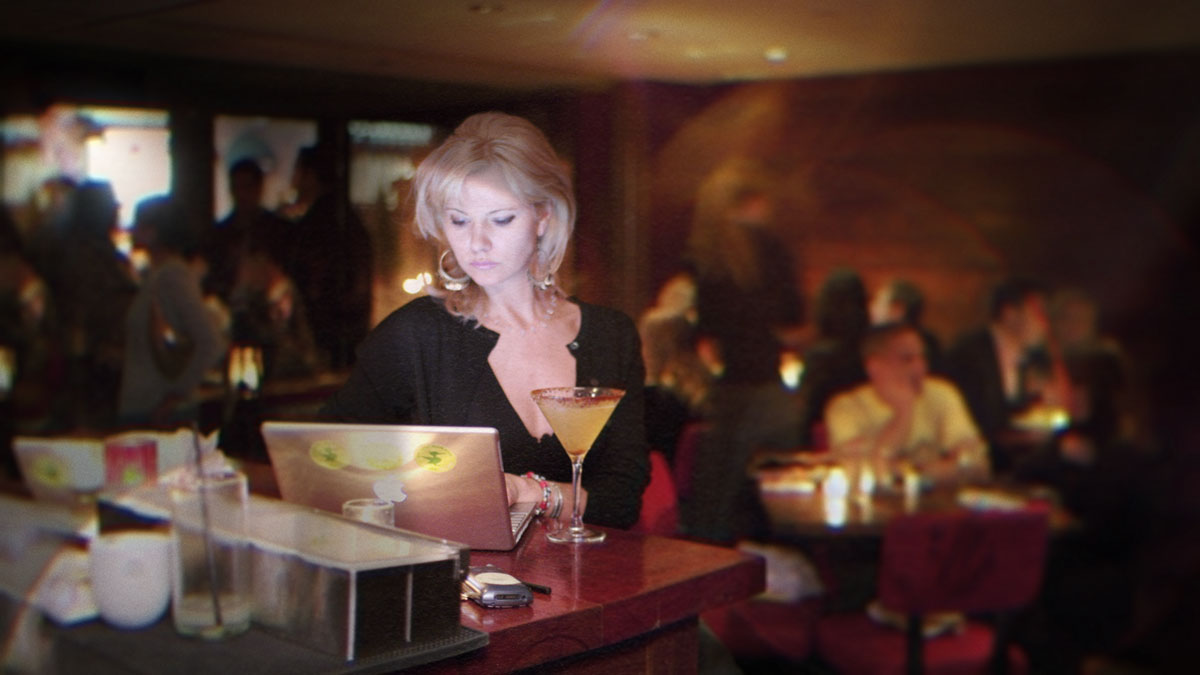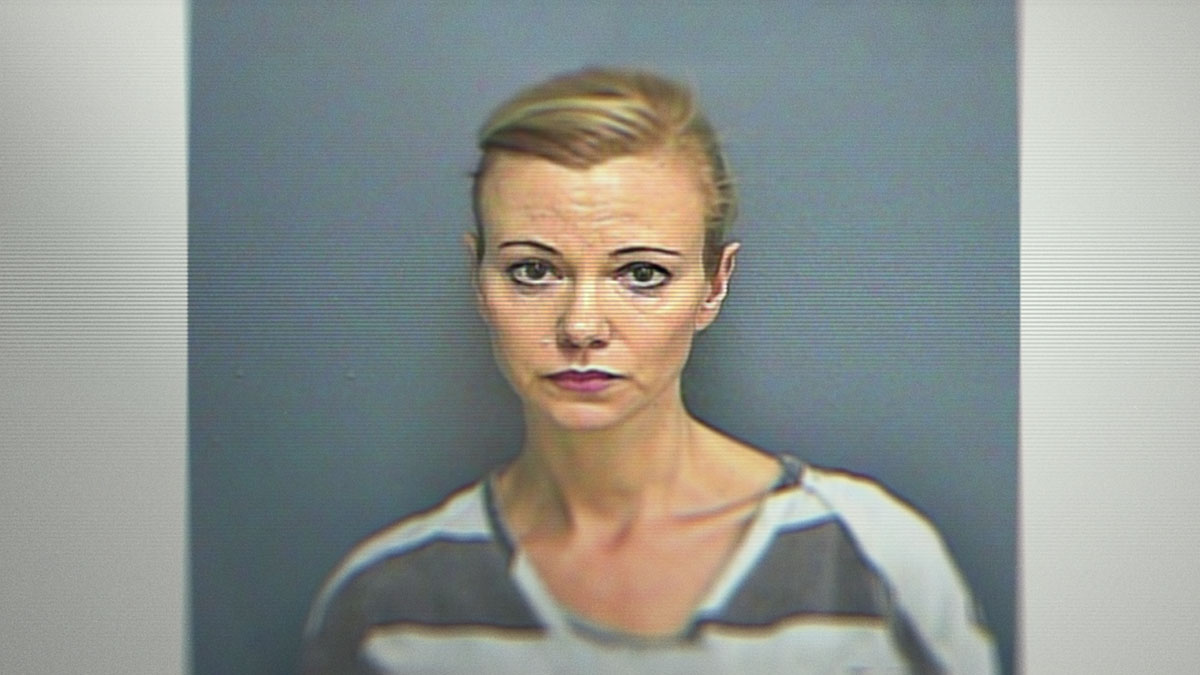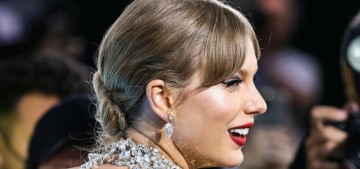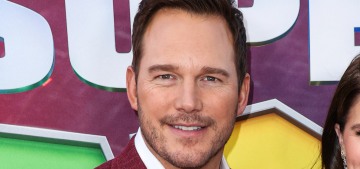Insider has an article with interviews with women featured in two popular Netflix documentary series, Tinder Swindler and Bad Vegan. Cecilie Fjellhøy was fleeced by notorious con artist Simon Leviev after a whirlwind romance that started on Tinder. Sarma Melngalis lost her New York City restaurant and failed to meet payroll after falling for an manipulative liar named Anthony Strangis. Both women tell Insider that their documentaries, directed by different men, failed to show the extent of the manipulation and abuse they endured and made them into jokes.
‘Bad Vegan: Fame: Fraud: Fugitives” and “The Tinder Swindler” were huge hits for Netflix in 2022. But for the women whose experiences at the hands of manipulative men were revealed to millions in the compelling scammer documentaries, the exposure has been a mixed blessing — a source of regret but also a cause for hope.
Cecilie Fjellhøy was the victim of a high-profile romantic scam by Simon Leviev (whose real name is Shimon Hayut), the so-called Tinder Swindler.
Fjellhøy wanted a factual documentary, she told Insider.
“I wanted to know why it is so difficult to catch this guy. To know why the police aren’t doing enough, why it was so simple for him to commit this fraud? Those were the big questions I wanted the film to answer.”
“So when we were told it was not going to be that, I was really disappointed. It’s just another telling of how stupidly in love we were,” she said.
“Even calling it the ‘Tinder Swindler,’ it just was branded from the start,” she said. “It just made it seem not as serious.”
Netflix focused on the ways the women fell for the fraud rather than the cruel crimes committed by Leviev, Fjellhøy said.
Fjellhøy said she cried the first time she saw it. “I just felt stupid because I was the one picked to be the symbol of love,” she said. “I had to be honest about how many matches I had on Tinder, how long I’d been on there, and how I viewed love. I had to say that I slept with him on the first date. I had to say stuff that I didn’t want to say. So you’re being used.”
In describing the negative feedback she got after the show aired, she said that a man approached her in Los Angeles to tell her she was “so embarrassing,” instead of the victim of a complex crime…
When asked if Netflix portrayed the abuse correctly, Fjellhøy said, “No, that’s why I wanted it to be more investigative and maybe have a psychologist. Someone to explain what the abuse actually was…”
Another documentary star, Sarma Melngailis of “Bad Vegan,” also criticized Netflix for its portrayal of her…
Behind closed doors, she was being sexually, mentally, and financially abused, Melngailis told Insider.
Netflix “made a joke” of the trauma she endured at the hands of Strangis, Melngailis said. “Bad Vegan” included many inaccuracies, she claimed, and did a “great disservice to all the people that have been through something like this.”
I agree with Cecile and Sarma’s criticism of these shows and have mentioned in my coverage that they didn’t cover coercive control at all. Sarma’s abuse was completely glossed over in Bad Vegan in favor of sensationalism. The women in Tinder Swindler were shown as gullible, although the show did go further than most in showing how they were threatened. I’m thinking of the scene where Cecile had Simon on the phone and he was threatening and yelling at her.
Ignorance of abuse is endemic in these true crime documentaries. I’ve talked about the Dirty John podcast, and how the victim, Debra Newell, went on a publicity tour with a psychologist to try to educate the public about coercive control and what she was going through. None of these shows included commentary from mental health experts about abuse as Cecile mentioned. They portray victims as dumb, naive and complicit. You’re not supposed to identify with them for the most part. That’s not to take away their agency, Sarma in particular didn’t seem to grasp how she had affected her employees, but the abuse she went through was ignored. I only remember a brief scene referencing blood spatter in her apartment. In these cases, the victims are alive to tell their stories, and that also means that they have to deal with the backlash from the way their experiences are portrayed. I haven’t been watching as many true crime documentaries for this reason. Plus they can be hard to take.
photos credit: Netflix and via Instagram













I am intimately familiar with how coercive control can absolutely erode your sanity and lead to horrible decision making. Like Cecile, it was at the hands of my partner. I was doing everything I could to please my partner without any regard for myself.
It was clear as day in both documentaries that the women were being controlled and needed help, and I didn’t appreciate the tone Netflix took with them- you know the thing Netflix often does in documentaries where the interviewee says something and then there’s the big silent **PAUSE** and downbeat? I felt like Netflix wanted us to sit on our couches and nod at how dumb these women were. But they weren’t dumb- they were victims. Maybe I take it too personally, but my heart broke for them then and now.
If this was 8 years ago, i would have judged these women harshly too and said how silly for them to allow these grifters to get the better of them. But after having experienced something similar where someone can completely get inside your mind, body and soul it is so possible to make horrific life changing decisions. I lost money, my dignity, peoples trust because of an individual who i was happy to do anything to keep for over 3 years. And now that i am outside of that experience i ask myself How on Earth did you allow that to happen!? My mum calls it witchcraft lol So yeah i feel bad for these ladies.
A friend called this being “dickmatized.”
I haven’t finished Bad Vegan but actually came back to it last night. The reason I stopped watching for a while was that it got boring. That sounds harsh but they spend so much time on the things that guy did without explaining how he managed to manipulate her into the things she did. The viewer is an outsider, watching his bullshit from afar, thinking “What is wrong with her that she doesn’t just end it?” Well, THAT’s the question, why didn’t she end it? She’s a smart, accomplished woman, who had people she could turn to. And she stayed. Let’s explore that! Her employees are clearly still bewildered and disappointed but the fact they don’t seem to resent her speaks for itself. I also still don’t have a sense of who Sarma really is. And I’ve watched hours of it. Something seems to be missing and I’m not sure I’ll find out what in the remaining episodes.
I’m not interested in The Tinder Swindler because right now I don’t think I could stomach the guy.
I watched the whole thing and I never got a great sense of who Sarma was. I think that was part of her issue, she didn’t have a strong sense of self, and I think she was very lost which is partly why this scumbag was able to step in and take over. But again, we never got a great explanation of the WHY.
I would have liked more information on the legal side of coercive control, catfishing and conmen/conwomen. Why is it hard to press charges? What changes need to happen in the legal world, as well as within the police/FBI? Take for example, the case of Robert Hendy-Freegard (Netflix’s “The Puppet Master” and “Rogue Agent”). After tons of work by the FBI and Scotland Yard, he was finally caught and charged in 2005 and received a life sentence… only to have the sentence drastically reduced to nine years because the judge did not seem to understand coercive control. (“How can it be kidnapping if they are adults, free to leave at any time?”) He was out in four, then did it all over again.
There is another interesting case told in the podcast “Sweet Bobby” which is more respectful to the victim: a woman was conned by her cousin for years into believing she was in a romantic relationship, one that included coercive control — the woman had to give up her job and social life, she had to be available to “her boyfriend” at all times and essentially had phone sex with her cousin. Today, the cousin lives her own life as an affluent banker(?) with little repercussions socially or financially. This podcast does a better job addressing the legal aspects.
I think the problem is that you don’t ever really understand unless you’ve experienced it. I haven’t and I have to admit, I find it very difficult to grasp why a woman would give away her money and business for an asshole. I know on an intellectual level that she’s not weak or stupid, the guy is just a master manipulator and/or sociopath. Most people don’t stand a chance against those.
It’s difficult to legislate against behavior that doesn’t include fraud or physical harm. Or the threat of physical harm. It can be done but it takes experts and time to prosecute these crimes and let’s face it, most victims are women so what are the chances that the legal system puts in the time and effort?
This is the downside of infotainment. Netflix wants to make it entertaining to get as many eyeballs as possible. So they make it clever and funny at the expense of the womens pain. This is why I won’t watch The Thing About Pam. While not a documentary. They still took a true crime story and made it into a dramedy. The daughter of Betsy Faria has a Tik Tok account going into how they exploited her story without consulting her on it.
It just seems to reinforce this message that women are disposable and gleefully punished for wanting to love/be loved. It’s icky.
There is something about a lot of these documentaries I don’t like. I can’t put my finger on it but something is missing and yet they are often boring/too long. I tried a couple of Netflix documentaries and often stopped within or after the first episode. I recently tried Hulu’s Steven Stayner docu-series and had to stop as well.
I wonder if the film makers ever questioning WHY they are telling these stories. It is just about numbers – how many people have watched the series? Not sure a well rounded picture matters.
I feel bad for these poor women and everything they’ve been through. I don’t watch true crime anymore but this is a great opportunity to educate the wider public about coercive control and the many different ways in which people can be abused.
Hearing from a former colleague about what her (finally now ex-husband but still the father of her child) did to her was horrifying and she questioned herself and her sanity so many times before finally getting (mostly) free of him. It’s a shame she has to co-parent but at least she has been able to build a new life for herself and her son.
What was odd to watch about C in TS was she only wanted wealthy men. She was upfront about that. She wanted the flaunt and would swipe left on a guy that could have been wealthy, but didn’t show off. That was my take away. The whole mess might have been avoided if she judged the profiles on their personality and not what they flaunted.
Sarma, idk. The series didn’t make sense so I read a lot more about it and it still doesn’t seem like she was a naive victim.
We all shared our experiences with coercive control when they came out and I get it, to a point. We have to be secure in ourselves before we start dating. We have to not seek financial stability in others. We have to love ourselves and have healthy standards with love and money regarding others. Imo you need those for a healthy relationship.
I felt bad for all the Tinder Swindler victims.
For me, the series didn’t go far enough into psychological aspects, depending instead on law enforcement as resolution – but that will never be enough in con game type cases. Understand that it’s recreation, not actual footage of events, but it would have been far more fulfilling if they had added one more true-life episode talking to experts about vulnerability and how potential targets can immunize themselves.
Netflix absolutely downplayed the abuse. I watched both and was shocked that they were being depicted the same way that the abusers made them feel. I was pretty disgusted.
As someone who spent a decade in an abusive and manipulative relationship, I viewed these women through a different lens than the average viewer. I am shocked that people walked away thinking these women were dumb or embarrassing. I saw kind hearted women who thought they were helping someone who needed them. You could call them naive, but truly most of us are naive about this type of abuse and control, and until you have experienced it you cannot understand. And naivety doesn’t have to be a bad thing, there are people who are pure of heart who haven’t been jaded by life who are doing kind things for others because they haven’t been hardened by life experiences, and that is a wonderful thing. I saw Cecilie as being so pure and innocent at the beginning, and instead of seeing it as cringeworhty, i was touched at how sweer she was. But I suppose we are all clouded by our own judgement.
I view both of these as cautionary tales of what can happen when someone gets too much control over another. The average viewer saw a salacious story with crazy anecdotes and some good gossip without wanting to dig deeper. I truly wish Netflix had done more to explain HOW these things happened, beyond making the women scapegoats for their own abuse.
yknow i actually quite like a few netflix documentaries but couldnt get through these and that is exactly why. they did not make these women seem sympathetic. i cant imagine how they must feel, despite reading it, despite experience parallels as im attempting to end an abusive marriage. i hope another director does them justice. maybe to specifically focus on the abuse, how it was possible, or something of that nature?